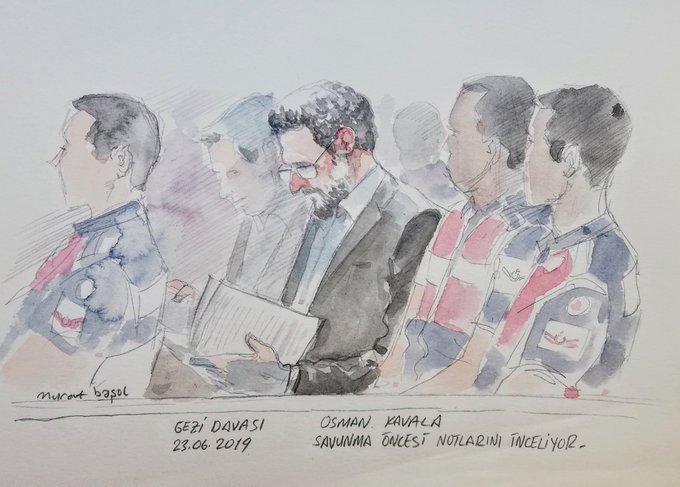


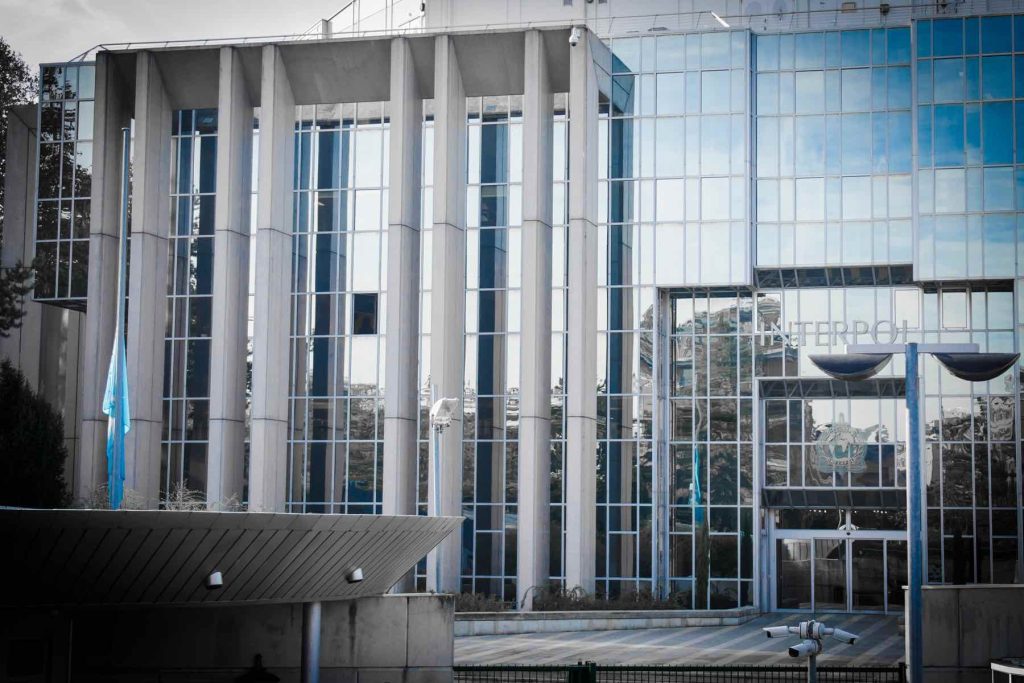

[Détails en Français ci-dessous]
[يتبع بالعربي]
Successive post-revolution governments in Tunisia have failed to implement policies capable of effectively addressing the country’s economic and social crises. With a traditional political elite unable to meet citizens’ expectations, populist currents are emerging all over the world, and Tunisia is no exception.
The 2019 presidential and legislative elections in Tunisia saw the rise of what many describe as “populist” parties and political figures who did not present a concrete platform but who did present themselves as “anti-regime.”
This panel discussion will explore the modern history and specificities of Tunisian populism, its central figures, and its discourse. It will also explore how populism has affected Tunisia’s political transition and the dangers it represents for the country’s democratic aspirations.
Sophie Bessis
Historian and writer specializing in sub-Saharan Africa, the Maghreb, Tunisia, and the status of women in the Arab world.
Asma Nouira
Professor and Chair of the Department of Political Science in the Faculty of Law and Political Science at the University of Tunis-El Manar, specializing in the relationship between the state and Islam.
Mohamed Sahbi Khalfaoui
Lecturer at the Faculty of Legal, Economic, and Management Sciences in Jendouba and a member of the Tunisian Observatory of Democratic Transition.
Ichraq Ghdiri
Coordinator of the State of Law Department at Solidar-Tunisie and a researcher at the Faculty of Law and Political Science in Tunis and former student activist at the General Union of Tunisian Students.
Le Projet sur la démocratie au Moyen-Orient (POMED) a le plaisir de vous inviter à participer au webinaire :
(L’événement se tiendra en langue Arabe)
le Jeudi 12 Novembre
18h30 à 20h (GMT +1)
Via Zoom
Si vous avez des difficultés à accéder au webinaire Zoom, ou si vous ne vous êtes pas préinscrit, regardez le livestream Facebook.
Pour soumettre des questions aux intervenants, veuillez utiliser la fonction “Questions et réponses” de Zoom ou les envoyer par courriel à ons.mhimdi@pomed.org.
Les Intervenants
Sophie Bessis
Historienne et écrivaine; elle est spécialiste de l’Afrique subsaharienne, du Maghreb, de la Tunisie, et de la condition des femmes dans le monde arabe.
Asma Nouira
Professeur et directrice du département de sciences politiques à la faculté de droit et de sciences politiques de l’université de Tunis-El Manar. Elle est spécialiste des relations entre l’État et l’Islam.
Mohamed Sahbi Khalfaoui
Politiste, enseignant à la faculté des Sciences juridiques, économiques et de Gestion de Jendouba, membre de l’Observatoire tunisien de la transition démocratique.
Modération
Ichraq Ghdiri
Coordinatrice du département État de droit de Solidar-Tunisie et chercheuse à la faculté de droit et de sciences politiques de Tunisie. Elle est une ancienne militante étudiante de l’Union Générale des Etudiants Tunisiens.
Contexte
Les gouvernements tunisiens de la période post-révolutionnaire ont échoué, les uns après les autres, à mettre en œuvre des politiques capables de faire face aux crises économiques et sociales du pays. Avec une élite politique traditionnelle incapable de répondre aux attentes des citoyens, des courants populistes se développent partout dans le monde, et la Tunisie ne fait pas exception.
Les élections présidentielles et législatives de 2019 en Tunisie ont vu la montée de ce que beaucoup décrivent comme des partis et des personnalités politiques “populistes”, qui n’avaient pas de programme électoral concret mais qui se présentaient comme “anti-système”.
Ce webinaire explorera l’histoire moderne et les spécificités du populisme tunisien, ses principaux courants et son discours. Il examinera également comment le populisme a affecté la transition politique de la Tunisie et les dangers qu’il représente pour les aspirations démocratiques du pays.
يشرفنا دعوتكم في نقاش تحت عنوان
الخميس 12 نوفمبر 2020
من الساعة 6:30 مساءا بتوقيت تونس
عبر تطبيق زوم
إذا كنت تواجه مشكلة مع تطبيق زوم، أو إذا لم تقم بالتسجيل مسبقًا، شاهد البث المباشر على فسيبوك.ل
لإرسال أسئلة للمتحدثين يرجى القيام بذلك من خلال تطبيق زوم أو بإرسالهم بالبريد الإلكتروني إلى
المتحدثون
صوفي بيسيس
مؤرخة وكاتبة، متخصصة في تونس والمغرب العربي وإفريقيا جنوب الصحراء، ووضع المرأة في العالم العربي
أسماء نويرة
أستاذة ورئيسة قسم العلوم السياسية بكلية الحقوق والعلوم السياسية بجامعة تونس المنار. وهي متخصصة في العلاقة بين الدولة والإسلام
محمد الصحبي الخلفاوي
مدرّس-باحث بكليّة العلوم القانونيّة والاقتصادية والتصرّف بجندوبة، تونس، وباحث بالمرصد التونسي للانتقال الديمقراطي
الميسرة
إشراق الغديري
منسقة قسم دولة القانون في سوليدار – تونس وباحثة في كلية الحقوق والعلوم السياسية بتونس. ناشطة طلابية سابقة في الاتحاد العام لطلبة تونس
السياق
فشلت حكومات ما بعد الثورة في تونس، الواحدة تلو الأخرى، في تنفيذ سياسات قادرة على التعامل مع الأزمات الاقتصادية والاجتماعية في البلاد. مع وجود نخبة سياسية كلاسيكية غير قادرة على تلبية توقعات المواطنين، اصبحت التيارات الشعبوية في صعود في جميع أنحاء العالم، وتونس ليست استثناء.ل
شهدت الانتخابات الرئاسية والتشريعية لعام 2019 في تونس صعود ما يصفه الكثيرون بالأحزاب والشخصيات السياسية “الشعبوية”، الذين لم يكن لديهم برنامج انتخابي ملموس ولكنهم قدموا أنفسهم على أنهم “ضد النظام”.ل
تستعرض حلقة النقاش التاريخ الحديث وخصوصيات الشعبوية التونسية ؛ تياراتها الرئيسية وخطابها. كما تناقش أثرها على الانتقال السياسي في تونس والمخاطر التي تمثلها على التطلعات الديمقراطية للبلاد.ل

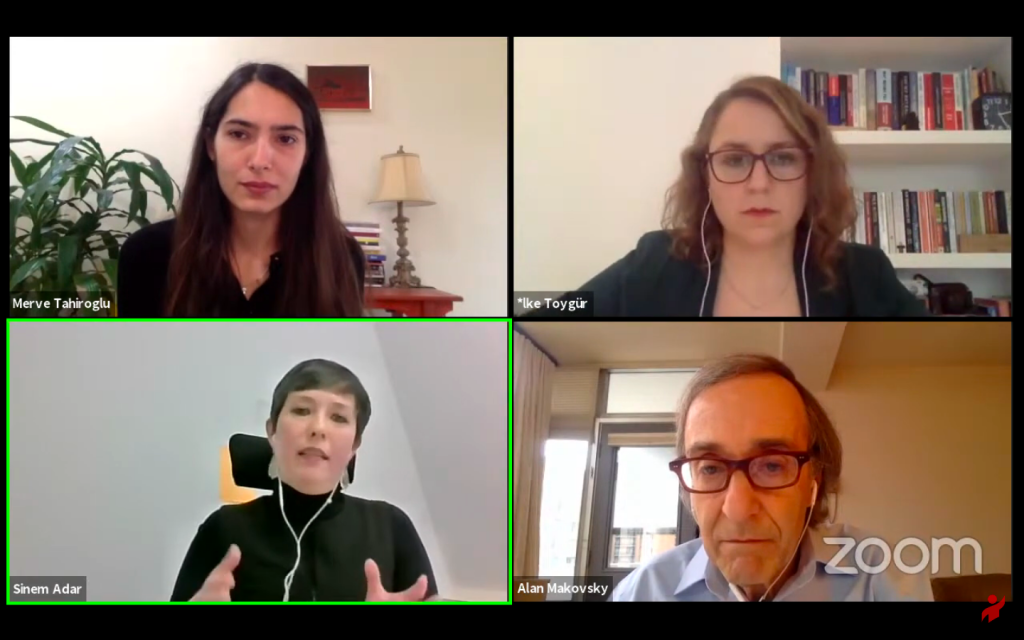
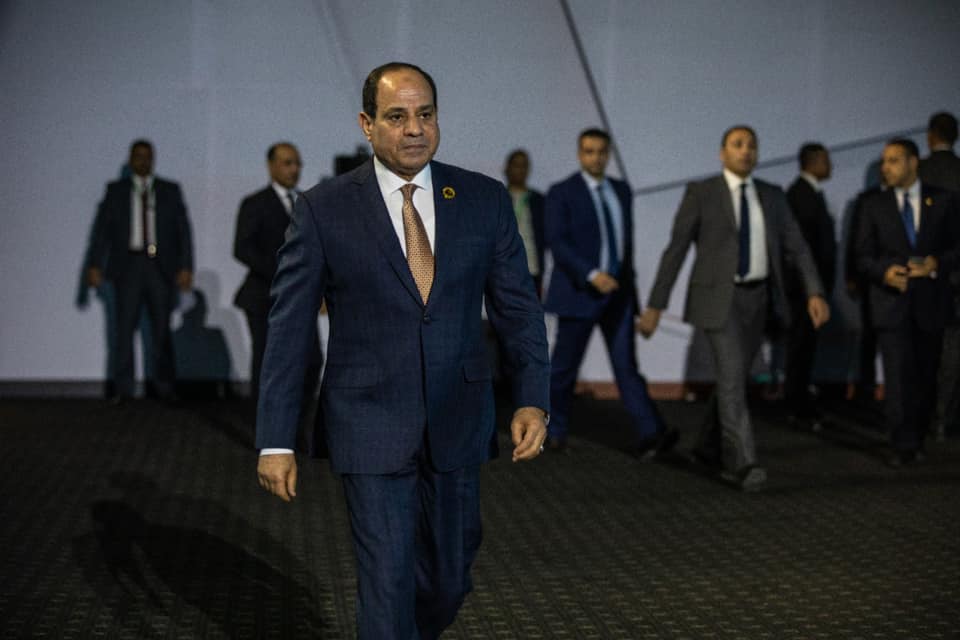

Ankara’s increasingly aggressive foreign policy is destabilizing its neighborhood. Turkey is embroiled in a tug-of-war with Greece, Cyprus, and France over natural gas exploration in the Eastern Mediterranean; is stoking the flare-up of violence between Armenia and Azerbaijan in the Caucasus; and remains deeply engaged in military conflicts in Syria and Libya. Turkey has contentious relations with several governments in the Middle East and North Africa and is edging towards a diplomatic fallout with the European Union. Although Turkish officials contend that an assertive, nationalistic foreign policy is needed to defend the country’s security, their pugnacious approach only seems to exacerbate Turkey’s regional disputes and deepen its isolation.
For many Turkish observers, this foreign policy does not reflect a national consensus. Rather, it is a product of President Recep Tayyip Erdoğan’s consolidation of power, sidelining of institutions and of the diplomatic process, and turn to populist nationalism to manufacture public support amidst mounting economic challenges at home. This panel discussion explored how Turkey’s democratic backsliding has contributed to its foreign policy crises.
 Sinem Adar is an associate at the Center for Applied Turkey Studies (CATS), based at Stiftung Wissenschaft und Politik (SWP, the German Institute for International and Security Studies) in Berlin. Sinem holds a PhD in Sociology from Brown University and has held postdoctoral research positions in Germany and the United States. Her research interests include nation- and state-building in Turkey, migration, populism, and diaspora politics. Sinem’s research has appeared in peer-reviewed academic journals and edited volumes. She has also contributed writing to Open Democracy, Jadaliyya, ReSetDoc, Bianet, and other outlets.
Sinem Adar is an associate at the Center for Applied Turkey Studies (CATS), based at Stiftung Wissenschaft und Politik (SWP, the German Institute for International and Security Studies) in Berlin. Sinem holds a PhD in Sociology from Brown University and has held postdoctoral research positions in Germany and the United States. Her research interests include nation- and state-building in Turkey, migration, populism, and diaspora politics. Sinem’s research has appeared in peer-reviewed academic journals and edited volumes. She has also contributed writing to Open Democracy, Jadaliyya, ReSetDoc, Bianet, and other outlets.
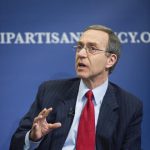
Alan Makovsky is a senior fellow for National Security and International Policy at the Center for American Progress. Alan has worked on Turkey and the Middle East in several capacities, including as a senior professional staff member on the Committee on Foreign Affairs in the U.S. House of Representatives; at the State Department’s Bureau of Intelligence and Research; and at the Washington Institute for Near East Policy.
 İlke Toygür is an analyst of European affairs at the Elcano Royal Institute, a CATS Fellow at SWP, and a fellow of the Transatlantic Relations Initiative at the Instituto de Empresa University. İlke holds a PhD in Political Science from the Autonomous University of Madrid. Her main research areas include European integration, Euroscepticism, geopolitics of Europe and transatlantic relations, and Turkish politics and foreign policy. İlke has previously been a Visiting Researcher at the European University Institute, the University of Mannheim, and the Brookings Institution.
İlke Toygür is an analyst of European affairs at the Elcano Royal Institute, a CATS Fellow at SWP, and a fellow of the Transatlantic Relations Initiative at the Instituto de Empresa University. İlke holds a PhD in Political Science from the Autonomous University of Madrid. Her main research areas include European integration, Euroscepticism, geopolitics of Europe and transatlantic relations, and Turkish politics and foreign policy. İlke has previously been a Visiting Researcher at the European University Institute, the University of Mannheim, and the Brookings Institution.
 Merve Tahiroğlu (moderator) is POMED’s Turkey Program Coordinator. Prior to joining POMED in September 2019, Merve was a research analyst at the Foundation for Defense of Democracies, where she focused on Turkey’s domestic politics, foreign policy, and relationship with Washington. She has authored several monographs and published articles in outlets such as Foreign Affairs, Washington Post, Wall Street Journal, Foreign Policy, Politico, and Huffington Post.
Merve Tahiroğlu (moderator) is POMED’s Turkey Program Coordinator. Prior to joining POMED in September 2019, Merve was a research analyst at the Foundation for Defense of Democracies, where she focused on Turkey’s domestic politics, foreign policy, and relationship with Washington. She has authored several monographs and published articles in outlets such as Foreign Affairs, Washington Post, Wall Street Journal, Foreign Policy, Politico, and Huffington Post.

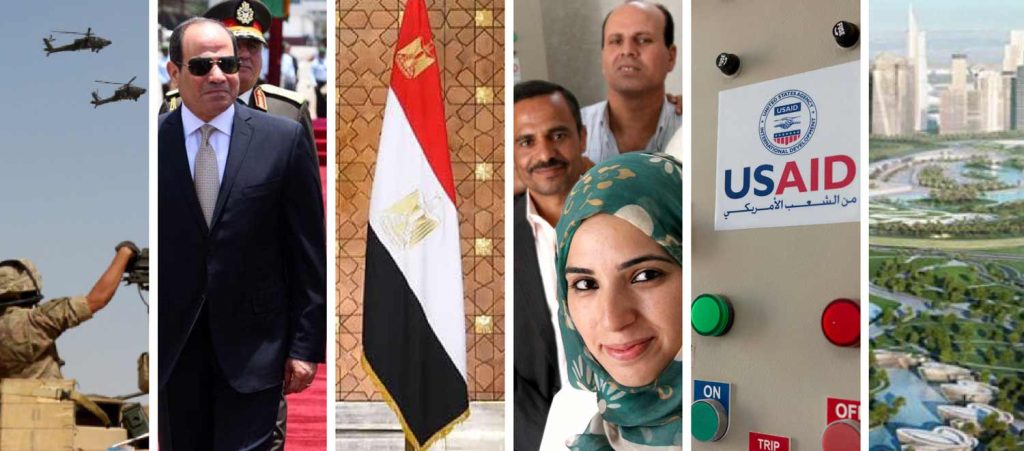
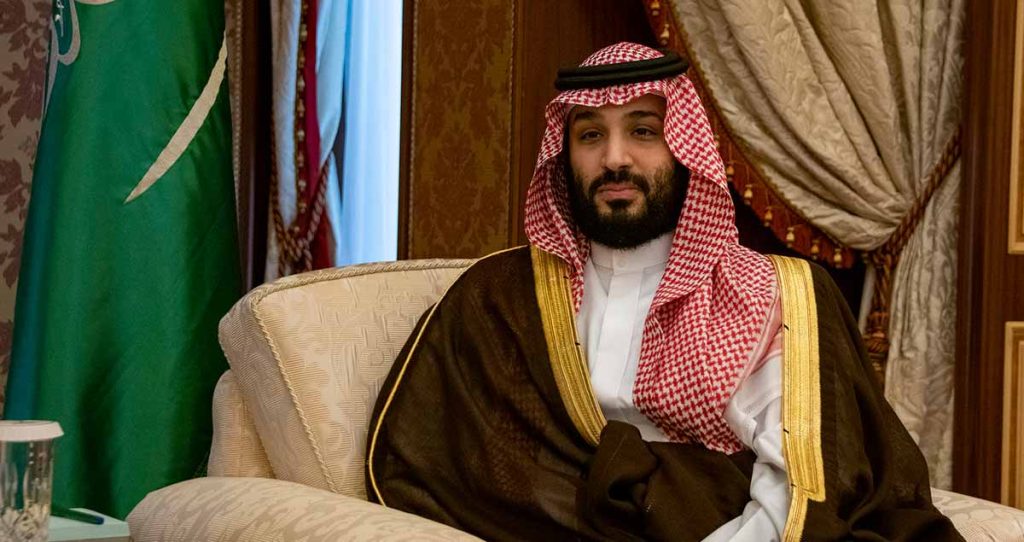
As the second anniversary of the Saudi government’s horrific October 2018 murder of Jamal Khashoggi approaches and as Saudi Arabia prepares to host the G20 Summit in November, the world’s eyes will once again be on the kingdom’s controversial day-to-day ruler, Crown Prince Mohammed bin Salman. The crown prince has cultivated an image as a modernizer and reformer, and his controversial tenure has included some economic and social reforms but also shocking levels of repression and impunity at home and reckless actions abroad. His missteps and abuses have raised questions about the kingdom’s long-term stability and suitability as an international partner of the United States. Please join POMED and an outstanding lineup of experts for a critical look at Mohammed bin Salman’s Saudi Arabia.
Or, watch the event on Facebook here.
Panelists
Hala Aldosari
Women’s rights activist and scholar from Saudi Arabia;
Washington Post‘s inaugural Jamal Khashoggi Fellow
Yahya Assiri
Human rights defender from Saudi Arabia;
Founder, ALQST;
Former member of the Saudi Royal Air Force
Iyad el-Baghdadi
Writer, entrepreneur, human rights activist;
President, Kawaakibi Foundation
Moderator
Stephen McInerney
Executive Director, POMED
Featuring remarks from:
Sen. Chris Van Hollen (D-MD)
Sen. Tim Kaine (D-VA)
Rep. Gerald E. Connolly (D-VA)
Rep. Ro Khanna (D-CA)
Rep. Tom Malinowski (D-NJ)
Rep. Jim McGovern (D-MA)
Rep. David Trone (D-MD)
Watch the trailer for Kingdom of Silence here.
Panelists
Ben Hubbard
Beirut Bureau Chief, New York Times;
Author of MBS: The Rise to Power of Mohammed Bin Salman
Madawi Al-Rasheed
Visiting Professor, Middle East Center,
London School of Economics and Political Science;
Fellow of the British Academy
Karen E. Young
Resident Scholar,
American Enterprise Institute
Moderator
Amy Hawthorne
Deputy Director for Research, POMED
Panelists
Yasmine Farouk
Visiting Fellow, Middle East Program,
Carnegie Endowment for International Peace
Ambassador Robert W. Jordan
U.S. Ambassador to Saudi Arabia 2001–2003;
Diplomat in Residence & adjunct professor of political science,
Southern Methodist University
Ali Soufan
Author and former FBI Special Agent;
Chairman & CEO, The Soufan Group
Moderator
Jackie Northam
International Affairs Correspondent, NPR
Panel 1
 Hala Aldosari is an award-winning activist and scholar from Saudi Arabia. Dr. Aldosari participated in protests against the women’s driving ban and has done important work to counter Saudi Arabia’s restrictive male guardianship laws. She has served as a board member for Human Rights Watch and the Gulf Center for Human Rights and as a scholar-in-residence at the Center for Human Rights and Global Justice. Dr. Aldosari was the Washington Post‘s inaugural Jamal Khashoggi Fellow and received POMED’s 2019 Leaders for Democracy award.
Hala Aldosari is an award-winning activist and scholar from Saudi Arabia. Dr. Aldosari participated in protests against the women’s driving ban and has done important work to counter Saudi Arabia’s restrictive male guardianship laws. She has served as a board member for Human Rights Watch and the Gulf Center for Human Rights and as a scholar-in-residence at the Center for Human Rights and Global Justice. Dr. Aldosari was the Washington Post‘s inaugural Jamal Khashoggi Fellow and received POMED’s 2019 Leaders for Democracy award.
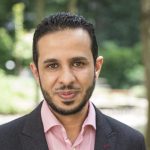 Yahya Assiri, a former member of the Saudi Royal Air Force, is a Saudi human rights activist and the head of the independent organization ALQST, which promotes human rights in the kingdom. Mr. Assiri has assisted several human rights organizations and participated in numerous courses and seminars relating to human rights. He has a Masters degree in Human Rights and Political Communications from Kingston University, London.
Yahya Assiri, a former member of the Saudi Royal Air Force, is a Saudi human rights activist and the head of the independent organization ALQST, which promotes human rights in the kingdom. Mr. Assiri has assisted several human rights organizations and participated in numerous courses and seminars relating to human rights. He has a Masters degree in Human Rights and Political Communications from Kingston University, London.
 Iyad el-Baghdadi is an internationally recognized activist for Arab democracy and expert on authoritarianism. He is the President of Kawaakibi Foundation and Editor-in-Chief of the Arab Tyrant Manual. A former career entrepreneur and startup consultant, in 2014 Mr. el-Baghdadi was summarily arrested and forcibly exiled from his home in the United Arab Emirates after gaining prominence during the 2011 Arab uprisings. He now resides in Norway, where he has been granted political asylum. He is co-author of the forthcoming book The Middle East Crisis Factory: Tyranny, Resilience and Resistance.
Iyad el-Baghdadi is an internationally recognized activist for Arab democracy and expert on authoritarianism. He is the President of Kawaakibi Foundation and Editor-in-Chief of the Arab Tyrant Manual. A former career entrepreneur and startup consultant, in 2014 Mr. el-Baghdadi was summarily arrested and forcibly exiled from his home in the United Arab Emirates after gaining prominence during the 2011 Arab uprisings. He now resides in Norway, where he has been granted political asylum. He is co-author of the forthcoming book The Middle East Crisis Factory: Tyranny, Resilience and Resistance.
 Stephen McInerney (moderator) is POMED’s Executive Director. Prior to joining POMED in 2007, he had spent six years living, working, and studying in the Middle East and North Africa. He spent two years in a master’s degree program in the Center for Arab and Middle Eastern Studies at the American University of Beirut, one year on a fellowship at the Center for Arab Study Abroad (CASA) at the American University in Cairo, and three years teaching at Cairo American College and the American School of Doha. He received a Master’s degree from Stanford University and is fluent in Arabic.
Stephen McInerney (moderator) is POMED’s Executive Director. Prior to joining POMED in 2007, he had spent six years living, working, and studying in the Middle East and North Africa. He spent two years in a master’s degree program in the Center for Arab and Middle Eastern Studies at the American University of Beirut, one year on a fellowship at the Center for Arab Study Abroad (CASA) at the American University in Cairo, and three years teaching at Cairo American College and the American School of Doha. He received a Master’s degree from Stanford University and is fluent in Arabic.
Featured Q & A
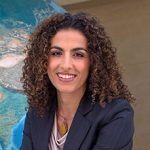 Sahar Aziz is Professor of Law, Chancellor’s Social Justice Scholar, and Middle East and Legal Studies Scholar at Rutgers University Law School. She is the founding director of the interdisciplinary Rutgers Center for Security, Race, and Rights. Professor Aziz is an editor for the Arab Law Quarterly and the International Journal of Middle East Studies. Her forthcoming book The Racial Muslim: When Racism Quashes Religious Freedom examines how religious bigotry racializes immigrant Muslims through a historical and comparative approach.
Sahar Aziz is Professor of Law, Chancellor’s Social Justice Scholar, and Middle East and Legal Studies Scholar at Rutgers University Law School. She is the founding director of the interdisciplinary Rutgers Center for Security, Race, and Rights. Professor Aziz is an editor for the Arab Law Quarterly and the International Journal of Middle East Studies. Her forthcoming book The Racial Muslim: When Racism Quashes Religious Freedom examines how religious bigotry racializes immigrant Muslims through a historical and comparative approach.
 Rick Rowley is an Oscar-nominated, Emmy-winning director. His films have won Television Academy Honors, a News and Doc Emmy, the DuPont-Columbia Award and a Peabody Nomination, and have been honored at festivals around the world. Rowley’s Oscar-nominated feature Dirty Wars (2013) was the culmination of ten years as a war reporter in Iraq, Afghanistan, and the lesser known battlegrounds of America’s “War on Terror.” Since then, Rowley has turned his lens on our domestic racial nightmare. His 2019 feature for SHOWTIME, 16 SHOTS, won Television Academy Honors, a News and Doc Emmy and a Peabody nomination for its unflinching look at the police murder of Laquan McDonald and the coverup that followed. His Emmy-winning series Documenting Hate (2018) unmasked an underground neo-Nazi fight club and a terrorist cell. The series received a DuPont Award and prompted an FBI investigation that led to dozens of arrests.
Rick Rowley is an Oscar-nominated, Emmy-winning director. His films have won Television Academy Honors, a News and Doc Emmy, the DuPont-Columbia Award and a Peabody Nomination, and have been honored at festivals around the world. Rowley’s Oscar-nominated feature Dirty Wars (2013) was the culmination of ten years as a war reporter in Iraq, Afghanistan, and the lesser known battlegrounds of America’s “War on Terror.” Since then, Rowley has turned his lens on our domestic racial nightmare. His 2019 feature for SHOWTIME, 16 SHOTS, won Television Academy Honors, a News and Doc Emmy and a Peabody nomination for its unflinching look at the police murder of Laquan McDonald and the coverup that followed. His Emmy-winning series Documenting Hate (2018) unmasked an underground neo-Nazi fight club and a terrorist cell. The series received a DuPont Award and prompted an FBI investigation that led to dozens of arrests.
Panel 2
 Ben Hubbard is the Beirut bureau chief for the New York Times and the author of MBS: The Rise to Power of Mohammed bin Salman. A fluent Arabic speaker with more than a decade of reporting experience in the Middle East, he has covered coups, civil wars, protests, jihadist groups, rotten fish as cuisine, and religion and pop culture from more than a dozen countries, including Saudi Arabia, Syria, Iraq, Lebanon, Turkey, Egypt, and Yemen.
Ben Hubbard is the Beirut bureau chief for the New York Times and the author of MBS: The Rise to Power of Mohammed bin Salman. A fluent Arabic speaker with more than a decade of reporting experience in the Middle East, he has covered coups, civil wars, protests, jihadist groups, rotten fish as cuisine, and religion and pop culture from more than a dozen countries, including Saudi Arabia, Syria, Iraq, Lebanon, Turkey, Egypt, and Yemen.
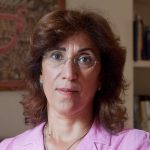
Madawi Al-Rasheed is Visiting Professor at the London School of Economics and Political Science Middle East Centre and Fellow of the British Academy. Al-Rasheed was previously Professor of Anthropology of Religion at King’s College London and Research Fellow at the Open Society Foundation. A prolific author, her latest book, The Son King: Reform and Repression in Saudi Arabia, will be published in 2021.
 Karen E. Young is a resident scholar at the American Enterprise Institute, where she studies the political economy of the Middle East with a focus on the states of the Gulf Cooperation Council. Previously, Dr. Young was a senior resident scholar at the Arab Gulf States Institute of Washington, a research and visiting fellow at the Middle East Centre of the London School of Economics and Political Science, and an assistant professor of political science at the American University of Sharjah. She is the author of The Political Economy of Energy, Finance and Security in the United Arab Emirates: Between the Majilis and the Market.
Karen E. Young is a resident scholar at the American Enterprise Institute, where she studies the political economy of the Middle East with a focus on the states of the Gulf Cooperation Council. Previously, Dr. Young was a senior resident scholar at the Arab Gulf States Institute of Washington, a research and visiting fellow at the Middle East Centre of the London School of Economics and Political Science, and an assistant professor of political science at the American University of Sharjah. She is the author of The Political Economy of Energy, Finance and Security in the United Arab Emirates: Between the Majilis and the Market.
 Amy Hawthorne (moderator) is POMED’s Deputy Director for Research and an expert on Middle East politics and U.S. policy. Before joining POMED five years ago, Ms. Hawthorne was a senior fellow at the Atlantic Council’s Rafik Hariri Center for the Middle East and Egypt Coordinator at the Department of State during the Arab Uprisings. Her previous positions include executive director of the Hollings Center for International Dialogue, fellow at the Carnegie Endowment for International Peace, and senior program officer for the Middle East at the International Foundation for Electoral Systems. Amy studied at Yale University and the University of Michigan and has lived and traveled extensively in the Arab world and Turkey.
Amy Hawthorne (moderator) is POMED’s Deputy Director for Research and an expert on Middle East politics and U.S. policy. Before joining POMED five years ago, Ms. Hawthorne was a senior fellow at the Atlantic Council’s Rafik Hariri Center for the Middle East and Egypt Coordinator at the Department of State during the Arab Uprisings. Her previous positions include executive director of the Hollings Center for International Dialogue, fellow at the Carnegie Endowment for International Peace, and senior program officer for the Middle East at the International Foundation for Electoral Systems. Amy studied at Yale University and the University of Michigan and has lived and traveled extensively in the Arab world and Turkey.
Panel 3
 Yasmine Farouk is a visiting fellow in the Middle East Program at the Carnegie Endowment for International Peace, where she focuses on Saudi Arabia and regional foreign relations. Dr. Farouk obtained her BA at Cairo University, her PhD at Sciences Po Paris, and was a Fulbright Fellow at Yale University. Her previous research and publications have covered Egyptian and Saudi foreign policy, international relations in the Arab world, and social participation in policy and constitution making.
Yasmine Farouk is a visiting fellow in the Middle East Program at the Carnegie Endowment for International Peace, where she focuses on Saudi Arabia and regional foreign relations. Dr. Farouk obtained her BA at Cairo University, her PhD at Sciences Po Paris, and was a Fulbright Fellow at Yale University. Her previous research and publications have covered Egyptian and Saudi foreign policy, international relations in the Arab world, and social participation in policy and constitution making.
 Ambassador Robert W. Jordan is Diplomat in Residence and adjunct professor of political science in the John G. Tower Center for Political Studies at Southern Methodist University. He served as the U.S. ambassador to Saudi Arabia from 2001 to 2003 and as partner in the international law firm Baker Botts L.L.P. for many years where he headed the Middle East practice in Dubai. Ambassador Jordan is the author of Desert Diplomat: Inside Saudi Arabia Following 9/11.
Ambassador Robert W. Jordan is Diplomat in Residence and adjunct professor of political science in the John G. Tower Center for Political Studies at Southern Methodist University. He served as the U.S. ambassador to Saudi Arabia from 2001 to 2003 and as partner in the international law firm Baker Botts L.L.P. for many years where he headed the Middle East practice in Dubai. Ambassador Jordan is the author of Desert Diplomat: Inside Saudi Arabia Following 9/11.
 Ali Soufan is Chairman and Chief Executive Officer of The Soufan Group. A leading national security and counterterrorism expert, he plays a significant advisory role in global intelligence issues. As an FBI Supervisory Special Agent, Mr. Soufan investigated and supervised complex international terrorism cases, including the events surrounding 9/11. He serves as a member of the Homeland Security Advisory Council. Mr. Soufan is the author of Anatomy of Terror: From the Death of bin Laden to the Rise of the Islamic State and New York Times best-seller The Black Banners: The Inside Story of 9/11 and the War Against al-Qaeda.
Ali Soufan is Chairman and Chief Executive Officer of The Soufan Group. A leading national security and counterterrorism expert, he plays a significant advisory role in global intelligence issues. As an FBI Supervisory Special Agent, Mr. Soufan investigated and supervised complex international terrorism cases, including the events surrounding 9/11. He serves as a member of the Homeland Security Advisory Council. Mr. Soufan is the author of Anatomy of Terror: From the Death of bin Laden to the Rise of the Islamic State and New York Times best-seller The Black Banners: The Inside Story of 9/11 and the War Against al-Qaeda.
 Jackie Northam (moderator) is NPR’s International Affairs Correspondent. She is a veteran journalist who has spent three decades reporting on conflict, politics, and life across the globe – from the mountains of Afghanistan and the desert sands of Saudi Arabia, to the gritty prison camp at Guantanamo Bay and the pristine beauty of the Arctic. Northam has received multiple journalism awards, including Associated Press awards and regional Edward R. Murrow awards, and was part of an NPR team of journalists who won an Alfred I. duPont-Columbia University Award for “The DNA Files,” a series about the science of genetics.
Jackie Northam (moderator) is NPR’s International Affairs Correspondent. She is a veteran journalist who has spent three decades reporting on conflict, politics, and life across the globe – from the mountains of Afghanistan and the desert sands of Saudi Arabia, to the gritty prison camp at Guantanamo Bay and the pristine beauty of the Arctic. Northam has received multiple journalism awards, including Associated Press awards and regional Edward R. Murrow awards, and was part of an NPR team of journalists who won an Alfred I. duPont-Columbia University Award for “The DNA Files,” a series about the science of genetics.
Photo credit: Ron Przysucha/State Department